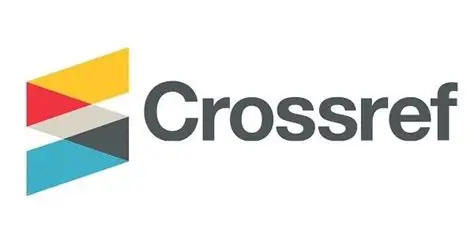APPLICATION OF MACHINE LEARNING TO SUPPORT SELF-MANAGEMENT OF ASTHMA WITH M-HEALTH
Keywords:
Application of Machine learning to support self-management of Asthma with mhealth,,Abstract
Several initiatives have been made to employ mHealth technology to aid in the treatment of asthma,
but none of them give personalized algorithms that can deliver real-time feedback and individualized counsel
to patients based on monitoring. In this study, the Asthma Mobile Health Study (AMHS) dataset was used
with machine learning approaches to create early warning algorithms for improved asthma self-management.
There were 13,614 weekly surveys and 75,795 daily surveys in the AMHS, all from the same group of 5,875
patients. Both logistic regression and nave Bayes-based classifiers had great accuracy (AUC > 0.87) when we
used them to distinguish between stable and unstable periods using a variety of well-known supervised
learning techniques (classification). In order of decreasing relevance, we identified characteristics associated
with the use of quick-relief puffs, night symptoms, data input frequency, and day symptoms as the best
indicators of impending loss of control. No improvement in early warning algorithms at the population level
was seen when peak flow measurements were included.
References
Asthma UK. (2019, Sep. 27). Asthma facts and statistics [Online]. Available:
https://www.asthma.org.uk/about/media/facts-and-statistics/
H. Pinnock, H.L. Parke, M. Panagioti, L. Daines, G. Pearce, E. Epiphaniou, et al., “Systematic meta
review of supported selfmanagement for asthma: a healthcare perspective,” BMC Medicine, vol. 15, no. 1,
pp. 64, Mar. 2017.
P. Tinschert, R. Jakob, F. Barata, J. Kramer, and T. Kowatsch, “The potential of mobile apps for improving
asthma self-management: a review of publicly available and well-adopted asthma apps,” JMIR mHealth and
uHealth, vol. 5, no. 8, pp. e113, Aug. 2017.
My mHealth. (2020, Jan. 06). myAsthma [Online]. Available: https://mymhealth.com/myasthma
AsthmaMD. (2020, Jan. 06). AsthmaMD [Online]. Available: https://www.asthmamd.org/
Y. F. Y. Chan, B. M. Bot, M. Zweig, N. Tignor, W. Ma, C. Suver, et al., “The Asthma Mobile Health
Study, smartphone data collected using ResearchKit,” Scientific Data, vol. 5, pp. 180096, May 2018.
Y. F. Y. Chan, P. Wang, L. Rogers, N. Tignor, M. Zweig, S. G. Hershman, et al., “The Asthma Mobile
Health Study, a large-scale clinical observational study using ResearchKit,” Nature Biotechnology, vol. 35,
no. 4, pp. 354, Apr. 2017.
M. G. Pearson, and C. Bucknall, Measuring clinical outcome in asthma: a patient-focused approach.
Clinical Effectiveness & Evaluation Unit, Royal College of Physicians, 1999.
British Thoracic Society. (2019, Jul. 01). SIGN158 British guideline on the management of asthma
[Online]. Available: https://www.sign.ac.uk/assets/sign158.pdf [10] Global Initiative for Asthma. (2019, Jun.
. Global strategy for asthma management and prevention [Online]. Available: www.ginasthma.org
C.G. Jung, and H.S. Park, “Factors predicting recovery from asthma exacerbations,” Allergy, Asthma &
Immunology Research, vol. 8, no. 6, pp. 479, Nov. 2016. [12] S. Hamine, E. Gerth-Guyette, D. Faulx, B.B.
Green, and A.S. Ginsburg, “Impact of mHealth chronic disease management on treatment adherence and
patient outcomes: a systematic review,” Journal of Medical Internet Research, vol. 17, no. 2, pp. e52, Feb.


